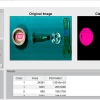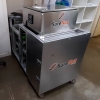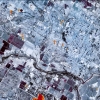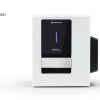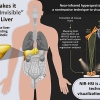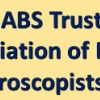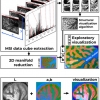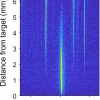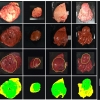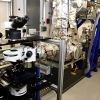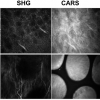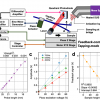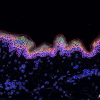News
Imaging News
This newly discovered enhancement mechanism of Raman scattering will open up the possibility of atomic-scale ultrasensitive vibrational spectroscopy to investigate surface structures of semiconductors.
The use of high-resolution secondary ion mass spectrometry imaging indicates that there may be up to 70 times more hydrogen in Earth’s core than in the oceans.
Papers covering Raman imaging measurements on zebrafish embryos, meteorites and jet engine thermal barrier coatings have received recognition in the WITec Paper Award 2021.
The free IDCube Lite software is an Interactive Discovery Cube that performs essential operations in hyperspectral data analysis to realise the full potential of spectral imaging.
An international research collaboration has found that Raman microspectroscopy and Raman imaging can identify aneurysm-specific signs in elastic and collagen fibres of the aorta.
Researchers at the University of South Australia have developed a hyperspectral imaging method for simultaneously grading almond quality and detecting potentially serious mycotoxin contamination in kernels.
The new instrument will help people, including resource managers and other officials, to address increasing concentrations of methane and carbon dioxide in the atmosphere.
Shimadzu has received two “Red Dot” design awards for their MALDImini-1 and iMScope QT, a MS and optical imaging instrument.
A highly efficient way to collect infrared microscopy data avoids the use of slow, grid-based raster scans.
NIR-HSI is non-invasive and can be used to quantify fat content in liver aiding medical research and the diagnosis of liver diseases.
Applications are invited for two awards administered by the ABS Trust.
Inspired by the eyes of mantis shrimp, researchers have developed a new kind of optical sensor that is small enough to fit on a smartphone but is capable of hyperspectral and polarimetric imaging.
Scientists from the Skolkovo Institute of Science and Technology (Skoltech) have proposed a mass spectrometry imaging (MSI) method making use of the unique features of human vision.
A new study reports an optimised approach to using laser-induced breakdown spectroscopy for analysing hydrogen isotopes. The new findings could enable improved rapid identification and measurement of hydrogen and other light isotopes that are important in nuclear reactor materials and other applications.
Near infrared hyperspectral imaging combined with machine learning can differentiate cancerous and normal tissue in tumours in deep tissue and covered by a mucosal layer.
A major advance in brain tumour diagnosis made by a research team from UK institutions using infrared spectroscopy at Diamond is highlighted in a short video.
An EU research project, CARMEN, aims to develop a multimodal imaging system capable of detecting cancerous cells during surgery.
Camo Analytics, producer of the Unscrambler chemometrics software, has been acquired by Aspen Technology, Inc.
Researchers from Osaka University have developed a new MSI method for brain tissue analysis in high spatial resolution that requires no sample preparation.
Multimodal imaging is being used by scientists to study skin ageing through the interaction of metabolism, cellular communication and cellular quality control in skin ageing accelerated by environmental stress.




